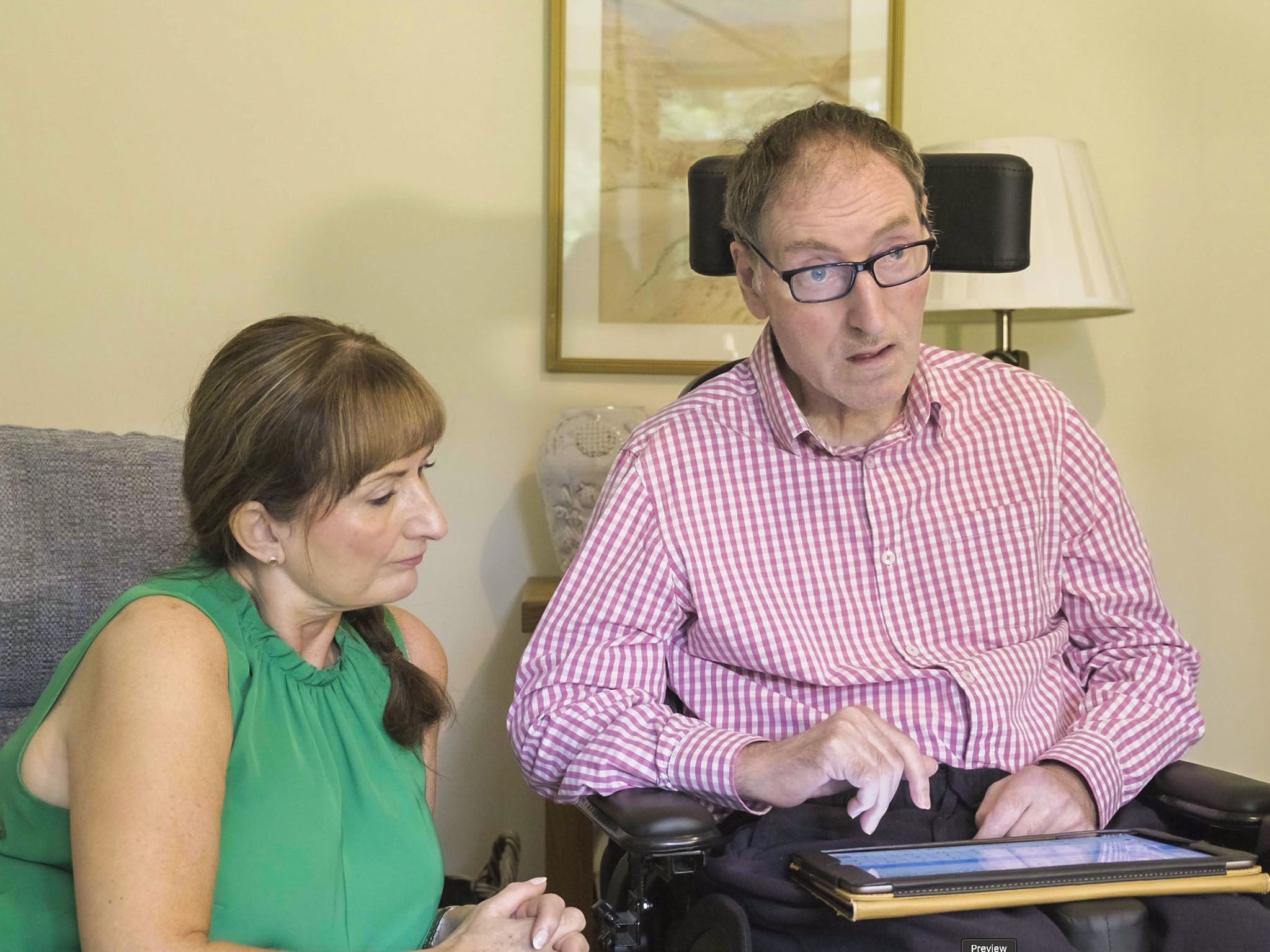Terminally ill man makes final plea to for right to die to be legalised ahead of assisted death at Dignitas
'It will be too late for me, but I hope that sometime soon people in my position will have the choice to have a peaceful death at a time of their choosing,' Richard Selley says in final video

A terminally ill former teacher has died at Dignitas, after making a final plea to politicians to enable people in his situation to end their lives at home.
Richard Selley who was diagnosed with motor neurone disease (MND) in 2015, had said the law change would be "too late" for him but would enable other terminally ill people to "die peacefully".
The 65-year-old's death was "dignified and calm" his wife Elaine Selley said, having been at her husband's side with his brother Peter at the time.
In a final video message before his planned death on Friday, Mr Selley, from the Scottish city of Perth, called on MSPs to support an assisted dying Bill.
"I hope that members of the Scottish Parliament support an assisted dying Bill in the future," said the former headteacher. "I think the momentum for a change in the law is growing. It will be too late for me, but I hope that sometime soon people in my position will have the choice to have a peaceful death at a time of their choosing."
He added: "Since my diagnosis with MND four years ago, I have lost the ability to walk, talk and swallow. I have also lost most of the power in my arms. Despite these losses I have tried very hard to remain positive and my palliative care has been outstanding."
He told of the process by which he had had to prove his terminal illness to Dignitas before being allowed to travel there to die, saying: "Despite what some people think, Dignitas do not let people simply fly to Zurich, knock on their door and ask to die."
He said the cost of attending the clinic in Switzerland is about £10,000, which he is "fortunate" he can afford, as others cannot.
He said having to be able to fly meant he was "choosing to die earlier than I would prefer", adding: "If an assisted death was possible in Scotland, I would be able to die at a time of my choosing, at home."
Ms Selley said she would continue to campaign "for the human right of those who are terminally ill to choose how and when they die in Scotland", describing the journey to Dignitas as "traumatic".
She said: "At Dignitas, in a clinically clean room, well-appointed but devoid of any personal touches, we could feel all the love that has been shared with us over the years. The end was dignified and calm, exactly as Richard wanted. He had taken control of his own destiny."
The 57-year-old added: "I will continue to fight for the human right of those who are terminally ill to choose how and when they die in Scotland. The experience of travelling to Switzerland will never leave me. It was traumatic. No-one should ever need to make that journey from a supposedly humane and compassionate country like Scotland."
Holyrood has twice considered Bills aimed at introducing assisted suicide, with these having been brought forward by independent MSP Margo MacDonald and, following her death from Parkinson's disease, Green MSP Patrick Harvie.
However, these both failed to get enough support to proceed through the Scottish Parliament.
Sarah Wootton, chief executive of the campaign group Dignity In Dying, which released Mr Selley's video, said: "Richard and his wife Elaine have shown immense bravery and dignity in sharing their story and speaking out about the injustice they have both suffered under the UK's outdated, broken law in their final weeks together."

She added: "If we are serious about improving end-of-life care in this country and ensuring that everyone has the death that's right for them, assisted dying must be part of the conversation."
Gordon Macdonald, chief executive of campaign group Care Not Killing, said it is "sad" Mr Selley's case is being used to "try and justify a campaign that will rip up long-held universal protections, by treating those who are terminally ill, disabled, or have chronic conditions differently in law".
He added: "Such a change in the law will put vulnerable people at risk of abuse and of coming under pressure to end their lives prematurely."
A Scottish Government spokesman said: "We empathise with Mr Selley and his loved ones and with anyone suffering from long-term, debilitating illness and pain. The Scottish Government respects the will of the Scottish Parliament on assisted dying, and is committed to ensuring that everyone has dignity and respect at the end of their life.
"Scotland is widely recognised for providing high-quality care in this area and we support greater public and personal discussion of bereavement, death, dying and care at the end of life."
Press Association
Join our commenting forum
Join thought-provoking conversations, follow other Independent readers and see their replies
Comments
Bookmark popover
Removed from bookmarks